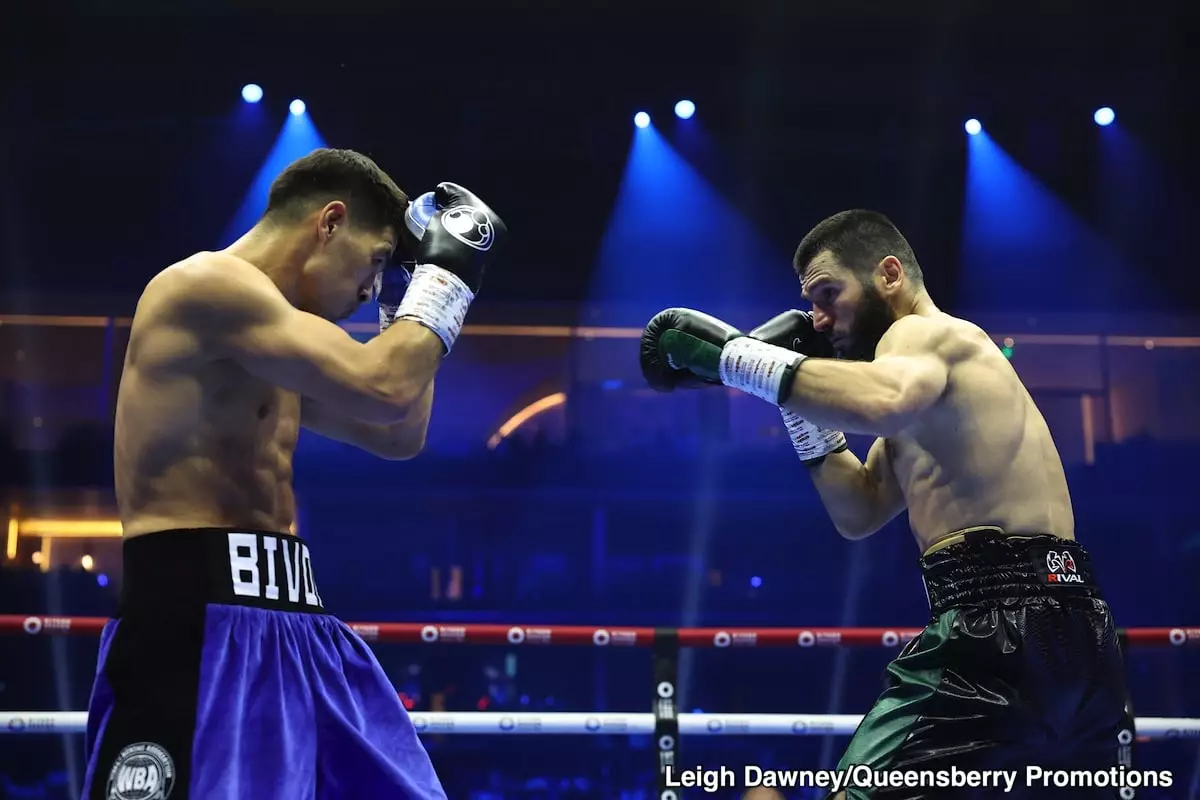The recent clash between Dmitry Bivol and Artur Beterbiev on October 12, 2023, at the Kingdom Arena in Riyadh left many boxing fans immersed in debate and speculation. Bivol’s protest to the four major boxing sanctioning bodies, seeking a rematch after losing via a majority decision, raises intriguing questions about the fairness of the fight, the integrity of the sport, and the motivations behind such a public outcry.
Bivol’s team has taken the bold step of filing a protest based on their claim that “the majority of viewers” believed he won the fight. This assertion lacks substantive backing, as viewer opinions are subjective and cannot be objectively quantified. While it’s not uncommon for fighters and their teams to feel they were wronged after a loss, Bivol’s argument feels rather flimsy and reinforces the image of poor sportsmanship. The determination of winners and losers ideally lies in the hands of qualified judges, not public perception – a point that makes Bivol’s grievance appear misguided.
The choice to cleave to this narrative of being unjustly judged can be seen as a strategy to maintain fan interest and support. Protests like this have precedents in boxing, such as the infamous Lewis-Holyfield I controversy, but without clear evidence, it may simply serve to highlight a lack of confidence in Bivol’s performance. Instead of enhancing his credibility, this move risks overshadowing his previous achievements and showcasing him as someone who cannot gracefully accept defeat.
While Bivol’s protest shifts focus to his perceived victimhood, an honest analysis of the fight reveals deeper issues at play. Selecting the fight strategy, Bivol aimed to utilize his agility and footwork, a tactic that initially showed promise. However, this strategy began to falter in the latter rounds. Bivol appeared to be overwhelmed by Beterbiev’s relentless pressure, particularly post-seventh round, where commentators noted a marked shift in momentum. Beterbiev, known for his punishing power, effectively cornered Bivol, executing a game plan that fully exploited his opponent’s vulnerabilities.
Contrary to his earlier movement-based strategy, Bivol’s reluctance to engage in the closing rounds led to speculation about his mental state and readiness to absorb damage. By seemingly opting to ‘run’ rather than ‘fight,’ Bivol inadvertently positioned himself as the weaker contender. This dynamic is pivotal, as it extends beyond mere physicality and delves into psychological preparedness, a crucial element in high-stakes boxing matches where the mental game can be just as significant as physical prowess.
Despite Bivol’s attempts to stake his claim for a rematch, the prospects seem overshadowed by the availability of more lucrative and appealing matchups for Beterbiev. Potential bouts with fighters like Canelo Alvarez or David Benavidez promise a more enticing viewer experience and may deliver a higher payoff, leaving Bivol at a crossroads.
Should a rematch occur, fans and analysts already speculate on potential adjustments each fighter could implement. Will Bivol’s camp modify their strategy to limit movement? Could a smaller ring help curtail Bivol’s evasive tactics? A rematch, despite its controversies, could serve as an opportunity for a more conclusive bout that fans are eager to witness. Nevertheless, it raises ethical questions about the merits of demanding a second shot when the initial result was indisputably in favor of the other fighter.
Bivol’s team might consider reflecting upon this situation not merely as a lost fight, but as an opportunity for growth. Negative focus on the loss could hinder future prospects or alienate some boxing fans. Instead, engaging in constructive self-assessment and strategically plotting the next steps could forge a stronger comeback narrative. Harnessing the defeat can be a powerful motivator for improvement, pushing Bivol to refine his technique and mentality for his next bout.
As the boxing community processes the ramifications of the Bivol-Beterbiev fight, the key lies in understanding the complexities of sportsmanship, competition, and strategy. While protests and grievances may emerge in the aftermath, genuine growth and passion for the sport often lead to more substantial and meaningful transformations for an athlete’s career. Acknowledging defeat, tactical errors, and the need for evolution may result in far greater achievements than futile protests ever could.

